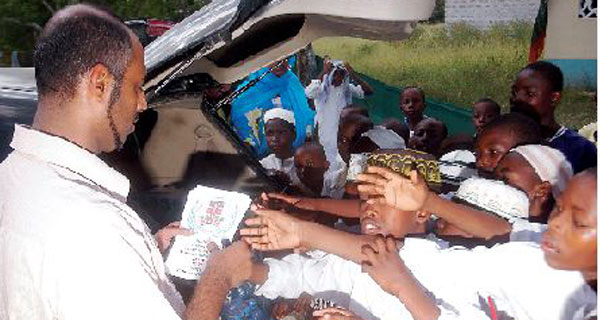×
The Standard e-Paper
Smart Minds Choose Us
 |
| Nayim Awadh Salim gives Muslim children leaflets branded with peace messages during Maulid celebrations in Mariakani, Kilifi County. [PHOTOS : OMONDI ONYANGO/STANDARD] |
By BENARD SANGA
Mombasa, Kenya: “It has ripped the social fabric of our once peaceful region and ushered in a season of religious unrest for this community,” says Nayif Awadh Salim to a cluster of youths listening to him.